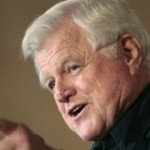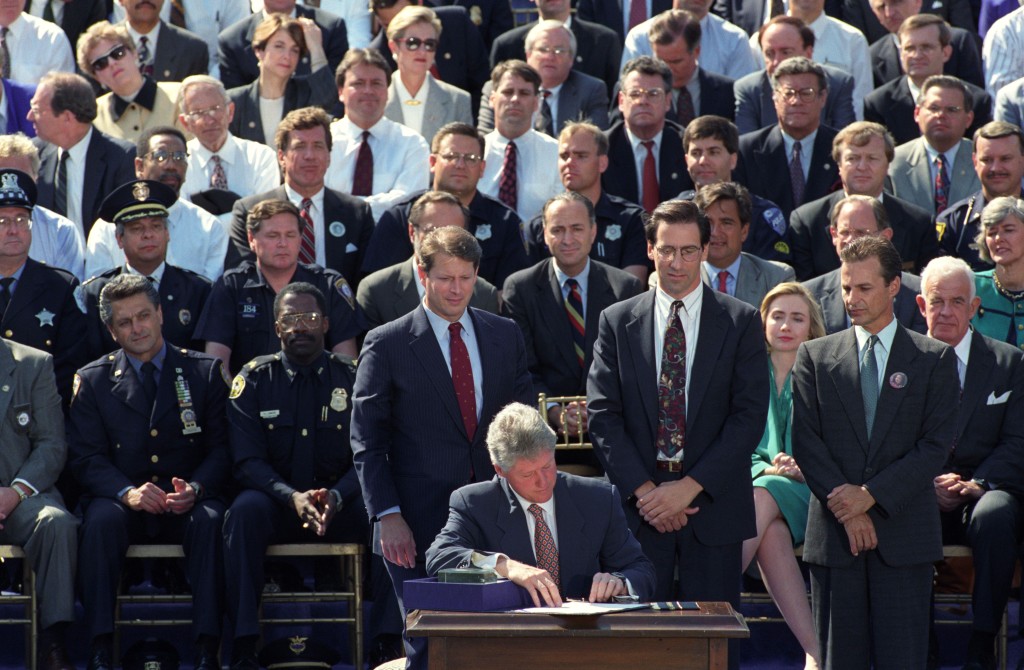Like most of the important events in my life, this story begins with the kidnap of my daughter Polly.
That I found myself sharing the world stage with the President of the United States should have filled my heart with pride. Instead depression and sadness informed my state of mind and directed my emotions during the first years after Polly’s tragedy. The result was that I spent that time in a semi-fugue state: devoid of joy; wishing that I were dead; and with little memory of the details of my life.
Polly’s tragedy captured America’s imagination like few crimes had before. Because it evolved over a sixty-five day span there were infinite opportunities for speculation, innuendo and predictions to run rampant. Millions of images of her pretty face and clear eyes stared back from telephone poles, television screens, computer monitors, and newspapers. The kidnap, rape and murder of Polly Klaas crossed a Rubicon and our collective consciousness demanded resolution. America’s obsession with her fate finally exploded in outrage when the scope of the tragedy was finally revealed on December 4, 1993.
Polly became the symbol of a crime epidemic that spread from Main Street, to Broadway, to Pennsylvania Avenue. California’s fledgling 3-Strikes & You’re Out initiative immediately secured twice as many signatures as it would need to qualify for California’s 1994 ballot. Governor Pete Wilson of California ordered a special legislative session to focus on crime. The Republican Party’s Contract with America would include an aggressive anti-crime agenda. President Clinton was promoting a Crime Bill designed to reinforce our law enforcement community as it held criminals accountable for their actions.
Shortly after Polly’s killer was arrested I was invited to appear on the Today Show. Katie Couric asked me if I had spoken with President Clinton. I told her that I had not, but would love the opportunity. By the time that Violet and I returned to the hotel later that morning there was a call waiting from the White House. On December 20, 1993 I was sitting in the Oval Office discussing crime with the president of the United States.
Among other topics of conversation the president enlisted me to lobby on behalf of his crime bill, which I was happy to do. That resulted in subsequent trips to Washington to testify before Congress, lobby individual members requesting their support for the Crime Bill, as well as numerous opportunities to promote the measure in media and other public forums. In return, President Clinton invited me to attend the ceremony where he would sign the largest crime control bill in America’s history on September 13, 1994.
I came up during a time when American politics was dominated by one family, and the name was neither Clinton nor Bush. In 1960 I campaigned for Jack Kennedy in his bid for the presidency. In 1963 I cried when I learned that he had been assassinated. When Bobby Kennedy ran for President in 1968, I enthusiastically hung my hopes on his candidacy and was devastated when his life was taken by an assassin’s bullet.
 So, as I followed President Clinton onto the podium on the South Lawn of the White House I was neither nervous nor overwhelmed by the rows of dignitaries sitting behind the President’s signing desk. However, I was taken aback when the portly gentleman with eager blue eyes and full head of windswept white hair stood up, extended his hand and said, “Senator Ted Kennedy. It is an honor to meet you”. As I shook his hand, I appreciated the absurdity of the moment and thought, “Everybody knows who you are,” as the first smile in many months finally lit up my face.
So, as I followed President Clinton onto the podium on the South Lawn of the White House I was neither nervous nor overwhelmed by the rows of dignitaries sitting behind the President’s signing desk. However, I was taken aback when the portly gentleman with eager blue eyes and full head of windswept white hair stood up, extended his hand and said, “Senator Ted Kennedy. It is an honor to meet you”. As I shook his hand, I appreciated the absurdity of the moment and thought, “Everybody knows who you are,” as the first smile in many months finally lit up my face.





